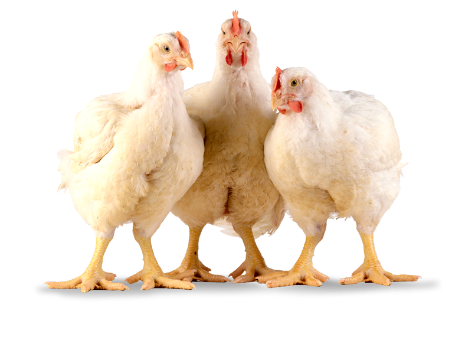
COMBAT POULTRY PARASITES
Parasites in Chickens
Like most vertebrates, chickens are vulnerable to parasites that can live on or in their bodies. Internal gastrointestinal helminths (worms) are a costly global problem for poultry production, capable of causing clinical disease, poor meat quality and other negative economic effects that severely erode the efficiency and profitability of producing meat and eggs. Internal parasite infestation poses a significant threat to the poultry industry and all types of chickens can be affected.
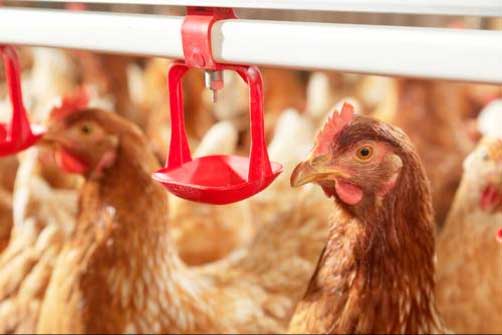
Types of Parasites
Parasitic nematodes populating the gastrointestinal tract of production birds are by far the most significant group of helminths affecting poultry, compared to other types of parasites like flukes or tapeworms.

Image courtesy of Dr. Dwight D. Bowman
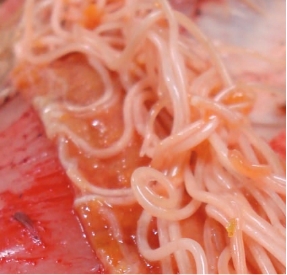
broiler chicken with Ascaridia galli
Image courtesy of Dr. Charles Broussard
Examples of chicken nematodes with direct life cycles
Three types of internal worms inflict most of the damage in modern poultry production.
- Roundworms (Ascarida galli) infect the lumen and walls of the small intestine.
- Cecal worms (Heterakis gallinarum) live in the cecal lumen.
- Hair worms (Capillaria spp.) infect the crop, the upper digestive tract or the intestine.
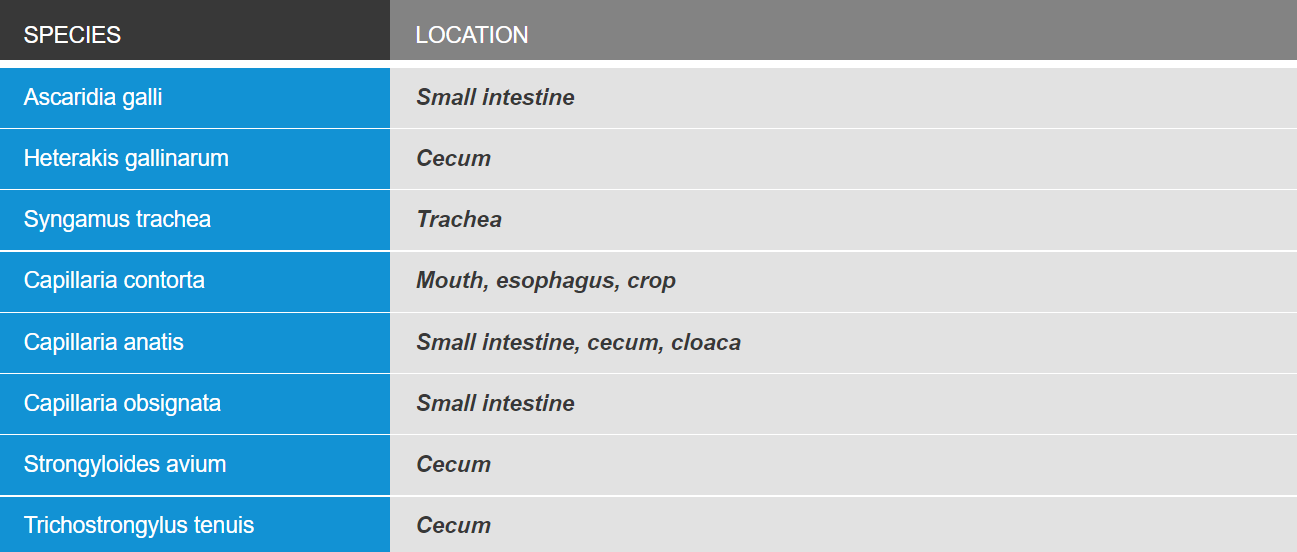

Better intestinal health means better birds.
Tips on minimizing impact
Preventative measures such as insecticide use and changing litter/soil between flocks are helpful for reducing worm outbreaks. Nevertheless, for many situations, the administration of anthelmintic medication in drinking water or via feed is necessary to control parasite burdens. Thus, anthelmintic treatment of chickens has become a common practice for managing the health and economic threats posed by nematode parasites.
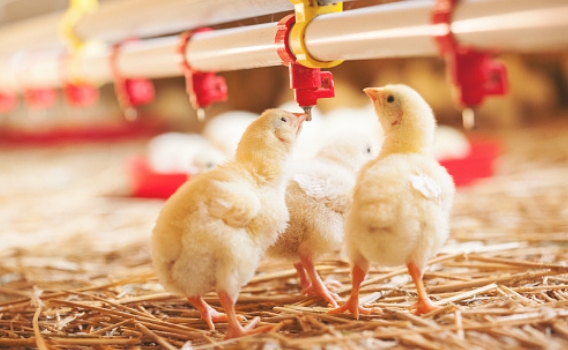
Fast, effective treatment can be the difference between lost profits and a strong bottom line. Panacur® AquaSol delivers uniform dosing across your entire flock in a simple solution that’s easy to use and mix with drinking water. Because it is mixed in with the drinking water, no bird goes untreated, ensuring that worms are eradicated and can’t come back as long as treatment persists.
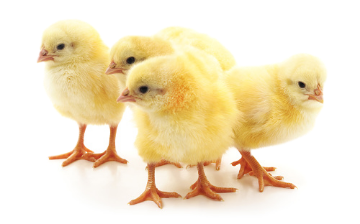
Info on production practices
Modern rearing practices characterized by improvements in housing, hygiene and management have greatly reduced the exposure of commercial flocks to nematode parasites and their intermediate carriers, resulting in significant reductions in the incidence and scope of parasitic diseases. Heavy, unmitigated parasitism can negatively affect weight and flock uniformity, and producers that fail to control parasites in their flocks will often suffer production drops and sacrifice profit potential. Poor flock uniformity especially affects layer and breeder operations since layers that do not reach weight targets often do not achieve persistent egg production.

Contact Us
Want more info about cost-effective, convenient options for treating worms in poultry? Fill out the form below and an MSD Animal Health specialist will get in touch with you to speak about parasitism in chickens.
